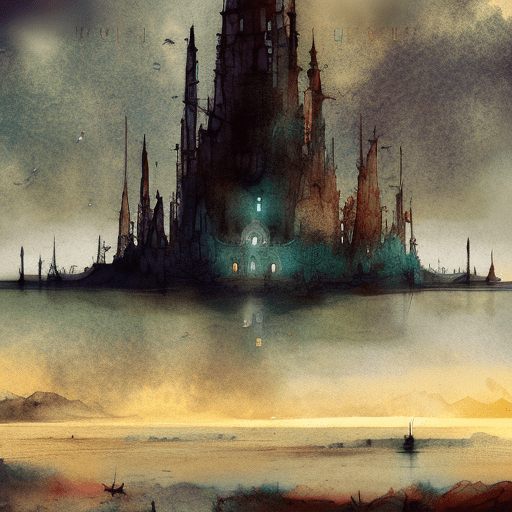One-line Summary:
Kafka on the Shore is a surreal and thought-provoking novel by Haruki Murakami that intertwines the stories of a teenage runaway and an elderly man on a quest for self-discovery.
The Tale of Kafka Tamura
Kafka Tamura, a fifteen-year-old boy, runs away from home to escape his father’s dark prophecy and to search for his long-lost mother and sister. He takes refuge in a private library in Takamatsu, where he meets Oshima, a transgender librarian, and Miss Saeki, the enigmatic owner. Kafka’s journey is filled with strange encounters and dreamlike experiences, blurring the line between reality and fantasy. As he delves deeper into his past and confronts his inner demons, Kafka discovers a hidden connection between himself and the residents of the library.
Nakata’s Quest for Lost Cats
Parallel to Kafka’s story is that of Nakata, an elderly man with a peculiar ability to communicate with cats. After a mysterious incident during his childhood, Nakata lost his memory and now lives a simple life as a finder of lost cats. When a series of bizarre events leads him to a murder case involving cats, Nakata embarks on a journey to find a missing cat and unravel the truth behind the strange occurrences. Along the way, he encounters supernatural phenomena and encounters a man named Hoshino, who becomes his loyal companion.
Themes of Identity, Fate, and the Power of Stories
Kafka on the Shore explores profound themes of identity, fate, and the power of stories to shape our lives. Murakami delves into the complexities of human existence, blurring the boundaries between reality and imagination. The characters in the novel struggle with their sense of self, grappling with their pasts and searching for meaning in their lives. The narrative weaves together multiple storylines, creating a tapestry of interconnected lives and experiences.
Key Takeaways:
- The novel explores the concept of identity and the search for self-discovery, highlighting the importance of embracing one’s true nature.
- Murakami’s surreal storytelling blurs the line between reality and fantasy, inviting readers to question the nature of existence and the power of imagination.
- The narrative emphasizes the interconnectedness of individuals and the impact of our actions on others, illustrating the ripple effect of choices and decisions.
- Kafka on the Shore delves into the themes of fate and destiny, suggesting that our lives are shaped by forces beyond our control.
- The power of stories is a recurring motif in the novel, emphasizing the transformative and cathartic nature of literature and storytelling.
“Memories warm you up from the inside. But they also tear you apart.”
– Haruki Murakami, Kafka on the Shore
In Kafka on the Shore, Haruki Murakami takes readers on a mesmerizing journey through the realms of dreams, memories, and the human psyche. With its rich symbolism, intricate storytelling, and profound exploration of identity and fate, the novel leaves a lasting impression. As readers navigate the labyrinthine narratives of Kafka Tamura and Nakata, they are confronted with existential questions and the enigmatic nature of reality. Murakami’s masterful prose and vivid imagery create a surreal atmosphere that lingers long after the final page. Kafka on the Shore is a literary masterpiece that invites readers to embrace the mysteries of life and revel in the power of storytelling.












